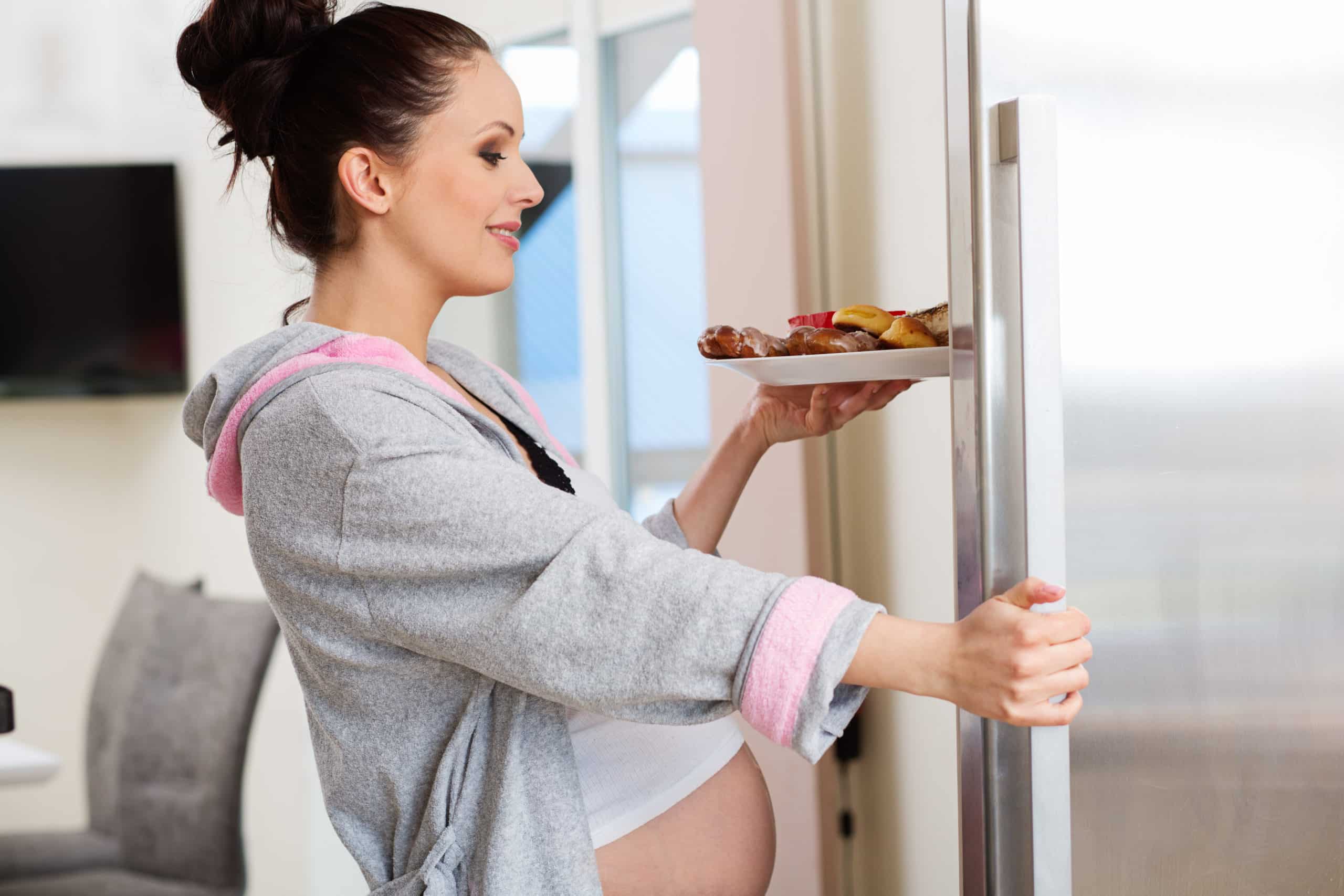Blog Reviewed and Edited by: Casey Seiden MS, RD, CDN, DCES
Making sure your body’s caloric needs are met from day to day can be a challenge – especially when it can feel like there are many different sources picking apart factors like what you should eat, how often, and in what amounts. It’s perfectly natural to be confused by these things, so meeting with a registered dietitian can be a great place to start. Here’s what to know about your caloric needs, how to figure them out, and ways to make sure you find the right balance for you.
What’s the best way for pregnant women to calculate their caloric needs?
While a pregnant woman will need extra calories to support her and her baby’s growth, trying to calculate and track daily caloric intake can be a tedious and often unwarranted task. Rather than trying to determine and record your calorie needs, focus on including nutrient-dense, whole foods with every bite. Fill your plate with quality protein like liver, chicken, fish, tofu, or legumes; colorful vegetables, healthy fats like avocado, olive oil or nuts; and whole grains. By creating well-balanced, hearty meals, you’ll be optimizing the development of your baby, stabilizing your blood sugar levels, and likely reaching your calorie needs all at once. If you’re nervous about meeting your calorie needs, I recommend tracking your weight gain throughout your pregnancy rather than tracking your calories – if you’re gaining 0.5-1lb per week in the second and third trimester, it’s a good indication that you’re consuming enough food.
It’s not recommended to track your calories, so in the second and third trimester, it can be helpful to add on an extra snack or meal. While in the first trimester your caloric needs don’t change from your pre-pregnancy requirements, in the second and third trimester you’ll need an additional 340-450 calories per day respectively. This can be met by an extra snack of foods like Greek yogurt with berries and nuts, a turkey avocado sandwich, or by simply adding in some extra nuts, seeds, butter, oils, or other calorically dense foods to your meals throughout the day.
What are the biggest things that can impact caloric needs for women?
In terms of pregnancy, your calorie needs will increase if you’ve having twins or multiples compared to a singleton pregnancy. They can also change if there are signs of growth restriction, or if you’re at a lower starting body weight prior to pregnancy. All of these factors indicate the need for extra calories; however, caloric needs are very individualized and no single diet or number of calories will be a one-size-fits-all. Height, weight, genetics, and various medical conditions will shift calorie and nutrient needs – work with a dietitian to determine what a healthy, well-rounded diet looks like for you.
What are signs that women may not be meeting/exceeding their caloric needs?
Low energy levels, disrupted sleep, constipation, and persistent hunger are all a few signs that you may not be consuming enough calories. Calories serve as the body’s energy source, so when we deprive ourselves of this fuel, we can feel sluggish and fatigued. Another sign that you may not be getting enough calories is if your baby is weighing in under the 5%, or if your weight is not increasing by 0.5-1lb per week throughout your second and third trimester.
You may be exceeding your calorie needs if certain blood markers, such as cholesterol, triglycerides, and blood glucose, start to appear elevated. These levels could indicate that you’re consuming foods high in saturated fat or sugars, which by their nature are calorie dense and otherwise nutrient poor. Of course, these levels can also be influenced by other factors like stress or genetics, so it’s important to examine the whole person.
Are there any common myths about women and caloric needs that should be dispelled?
The most common myth that should be dispelled is that all calories are equal. While making sure to get in enough food and calories are key, where those calories are coming from is also crucial in supporting both yourself and your baby. For example, 200 calories of soda will not be used by your body the same as 200 calories of eggs. While the former will spike your blood sugar and provide “empty calories,” void of any nutrients, the latter will provide you and your baby with choline, B vitamins, healthy fats, and protein for optimal growth and development.
It’s also commonly believed that in order to lose weight, one must dramatically cut calories all at once. Women often engage in very low-calorie diets (sometimes as low as 800-1000 calories per day) and this can be very damaging to your metabolic and hormonal health. In order to lose weight, it’s important to first meet your baseline calorie needs, and then create a small deficit through exercise and activity that you can sustain for the long term. This will usually lead to slow (but sustainable) weight loss and is a safer way to accomplish a weight loss goal. Meeting with a dietitian can be helpful in mapping out the right deficit while still meeting your calorie needs.
Schedule an Appointment
Meeting with a registered dietitian is the best place to start when it comes to ensuring your body has the fuel it needs. Schedule an appointment at our New York City office to meet with our dietetic team by calling or filling out our online form.

